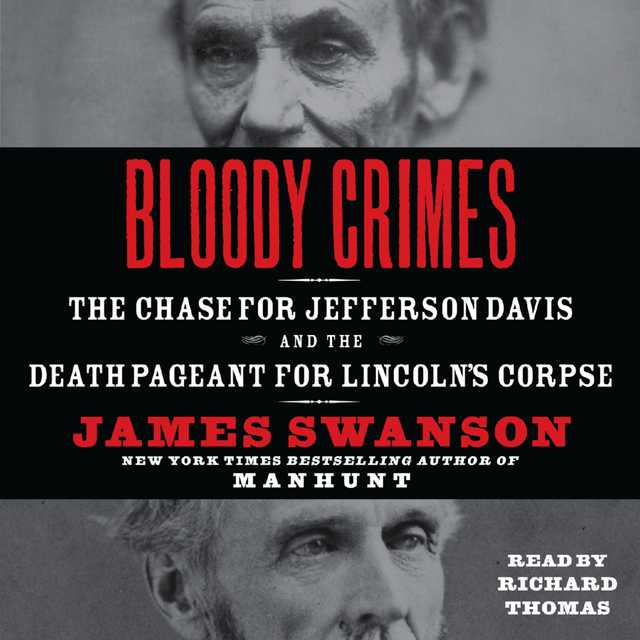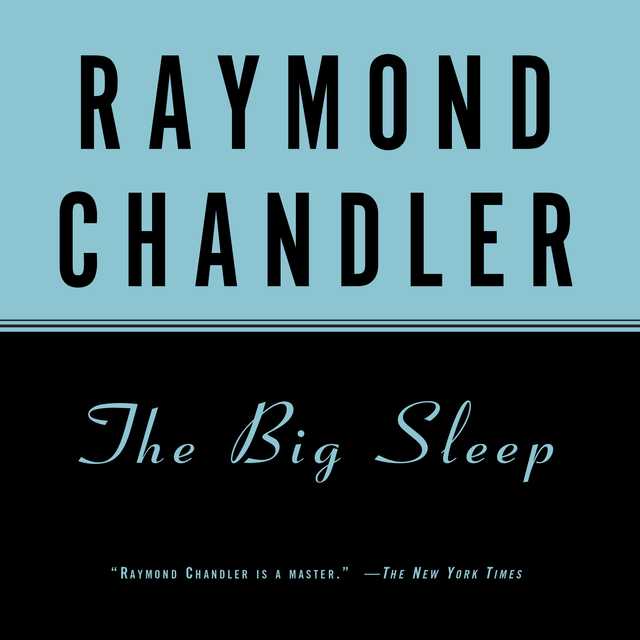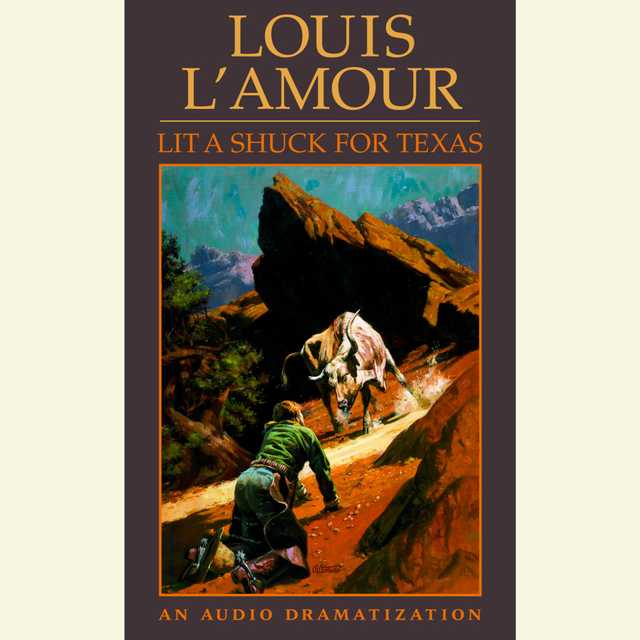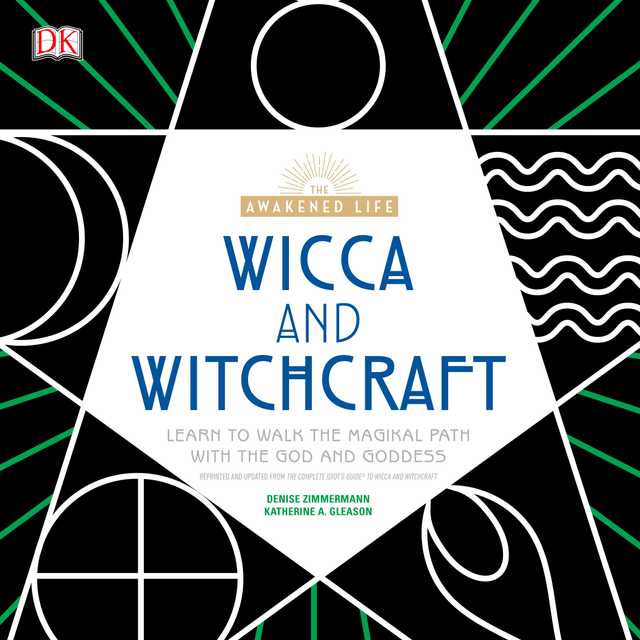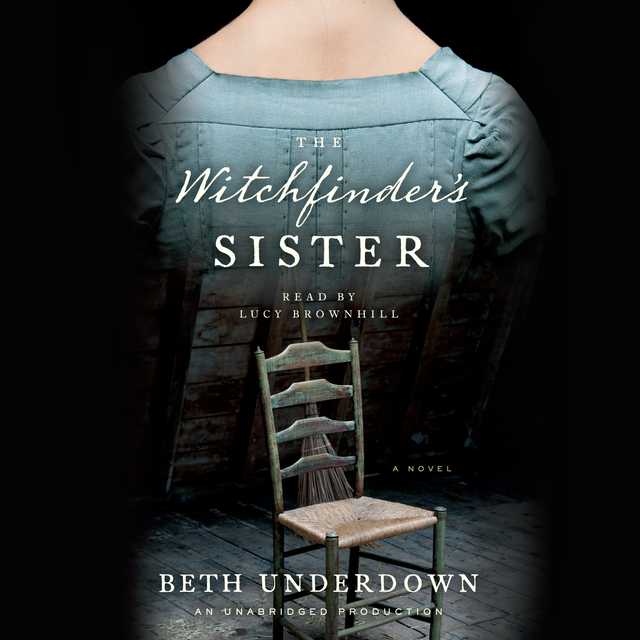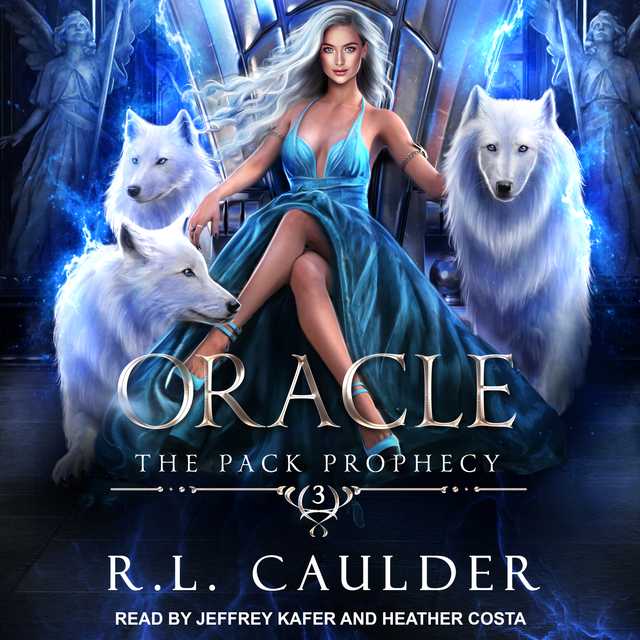Bloody Crimes Audiobook Summary
In Bloody Crimes, James L. Swanson–the Edgar(r) Award-winning, New York Times bestselling author of Manhunt–brings to life two epic events of the Civil War era: the thrilling chase to apprehend Confederate president Jefferson Davis in the wake of the Lincoln assassination and the momentous 20 -day funeral that took Abraham Lincoln’s body home to Springfield. A true tale full of fascinating twists and turns, and lavishly illustrated with dozens of rare historical images–some never before seen–Bloody Crimes is a fascinating companion to Swanson’s Manhunt and a riveting true-crime thriller that will electrify civil war buffs, general readers, and everyone in between.
Other Top Audiobooks
Bloody Crimes Audiobook Narrator
Richard Thomas is the narrator of Bloody Crimes audiobook that was written by James L. Swanson
Richard Thomas, in addition to his Emmy-award winning work on The Waltons, has starred in well over 40 television series and specials, among them Roots: The Next Generation, Law and Order SVU, and The Practice; he has also starred in numerous classic and contemporary plays around the country and on the London and Broadway stage, most recently in Richard Greenbergs A Naked Girl on the Appian Way.
About the Author(s) of Bloody Crimes
James L. Swanson is the author of Bloody Crimes
More From the Same
- Author : James L. Swanson
- Manhunt
- Manhunt
- End of Days
- Publisher : HarperAudio
- Abraham
- American Gods [TV Tie-In]
- Dead Ringer
- House of Sand and Fog
- Prey
Bloody Crimes Full Details
| Narrator | Richard Thomas |
| Length | 12 hours 44 minutes |
| Author | James L. Swanson |
| Publisher | HarperAudio |
| Release date | September 28, 2010 |
| ISBN | 9780061988608 |
Additional info
The publisher of the Bloody Crimes is HarperAudio. The imprint is HarperAudio. It is supplied by HarperAudio. The ISBN-13 is 9780061988608.
Global Availability
This book is only available in the United States.
Goodreads Reviews
Brian
January 17, 2021
“Let me beseech you to lay aside all rancor…” (3.5 stars)I read Mr. Swanson’s first book, “Manhunt”, and enjoyed it. So it made sense that I would pick up its sequel. “Bloody Crimes” is not as good a book as the one that preceded it. The beginning and the end of this text are pretty strong. The middle section, which tells the parallel stories of Lincoln’s funeral train’s journey from DC to Springfield, Illinois (where Lincoln is buried) and Jefferson Davis’ flight from Richmond as the Civil War was ending lagged for me. Swanson gets caught up in too many ridiculous (and unnecessary) details in this part.“Bloody Crimes” opens with a haunting prologue that focuses on a shared experience that Lincoln and Davis had while presidents of waring nations during a bloody conflict… the death of a son while residing in the executive mansion. In fact, one of the strongest aspects of this book is the interesting exploration of the many similarities between Abraham Lincoln and Jefferson Davis. It is a bit eerie, and I love history for that connective experience that most of us forget to consider. An interesting side note-I did not know, until reading this book, that Lincoln was elected with less than 40% of the popular vote. Over 60% of the country voted for someone else! It is facts like this that the current mob of historical ignoramuses (I’m talking to you, Electoral College haters) don’t even begin to know.History matters. Unvarnished history. History that is not whitewashed or purged so that only certain things are remembered. It matters because it is made up of people, people exactly like us, and knowledge of history allows us to honor our past (all aspects of it) as part of the human condition, and helps nudge us from making some of its more ugly aspects a reality again in the future. “Bloody Crimes” tries to do that, and for that reason alone I embrace it.Consider this- "Before you lies the future, a future full of golden promise, a future of expanding national glory, before which all the world shall stand amazed. Let me beseech you to lay aside all rancor, all bitter sectional feeling, and to make your places in the ranks of those who will bring about a consummation devoutly to be wished - a reunited country"It sounds like it could have been said by Abraham Lincoln. But it wasn’t. It was Jefferson Davis in 1888. When I read this in “Bloody Crimes” I felt a jolt of hope. America eventually reunited after the darkest period of its history. The world is always moving on, and reinventing itself. Dark periods throughout history have only lasted for their season.
Deacon Tom
November 06, 2022
Outstanding This is a thorough and detailed history of two American leaders. As a student of history, I was surprised how much new information I gleamed from this book. It is well documented and referenced. I recommend to history buffs.
Scott
February 22, 2021
3.5Bloody Crimes had many highs and many lows for me so overall I would rate it 3.5. James Swanson certainly knows this time period having written about it before in his Manhunt book about the manhunt for John Wilkes Booth. I thought the book was strongest when recounting the assignation of Lincoln and the pursuit of Jefferson Davis. I especially enjoyed the chase for Davis since I knew little of this phase of the war despite having ready many books about the Civil War. Most shocking to me was how loved Davis was to the South even after the disastrous war. I felt like Swanson was fairly sympathetic to Davis and the South which may rub some the wrong way. I wasn't offended as much as I was surprised by his apparent affection for Davis who seemed to me to be completely delusional and on the wrong side of history.The book lagged for me at times when Swanson seemed to want to rattle of lists of information that he uncovered like every charge made to the federal government for Lincolns funeral procession. Those low points reads like a grocery list.All in all I'm glad I read the Bloody Crimes because it had enough strong pieces to keep me interested.
Gary
December 17, 2010
This was an excellent book on a somewhat unusual subject. Swanson argues that the process of Lincoln's death pagaent, particularly his funeral train, turned him into America's secular saint. Many years later, though on a smaller scale, Jefferson Davis became a symbol of the South's "Lost Cause," but time has not sustained this image well. This volume surprised me in two ways. First, it makes Davis a much more sympathetic figure than most other works that describe him. Second, although he is not the author's subject, the invisibility of Andrew Johnson puzzled me. Through descriptions of Lincoln's funeral and the subsequent journey of his body by train to Springfield, Illinois, I kept wondering when Johnson was sworn in as president and where he was during all these ceremonies. Although there are a couple of brief references to him, it almost seems as if the nation did not need a chief executive during these days. Nonetheless, Swanson has written a highly readable book, which makes me want to obtain his earlier work, MANHUNT.
Brenda
October 11, 2011
This review originally appeared in the International Cemetery, Cremation & Funeral Magazine (www.iccfa.com)The 150th anniversary of the Civil War is upon us, and the tide of publications and commemorations is rising fast. Since the Civil War essentially kicked off the modern funeral industry, this increasing interest offers many relevant books for us. Award-winning author James Swanson’s previous volume was a gripping account of the escape and capture of John Wilkes Booth. His new book BLOODY CRIMES focuses on the parallel destinies of the two Civil War presidents. Abraham Lincoln, as we all know, was assassinated in April 1865. His embalmed body was shipped on a circuitous train trip back to Springfield, IL for burial. The stupendous civic grief and public mourning as the funeral train passed through the countryside is amazing to read. Michael Jackson’s funeral doesn’t hold a candle to this – the chinoiserie arches, the Victorian floral tributes, the hours-long orations, the passionate grief. Consider this period account from the Philadelphia stop:"On the old Independence bell, and near the head of the coffin, rested a large and beautifully made floral anchor, composed of the choicest japonicas and exotics... Eighteen candelabras and 108 burning wax tapers. Between this flood of light ... were vases of japonicas, heliotropes, and other rare flowers. A delicious perfume stole through every part of the hall, which, added to the soft yet brilliant light of the wax tapers, the elegant uniforms of the officers on duty, etc., constituted a scene of solemn magnificence..."There are thrilling images of the commemorations, including a reproduction of the only photograph of Lincoln’s actual coffin. And your heart will bleed for the valiant team of embalmers who traveled on the train, combating summer heat and humidity, primitive preservation practices, and hysterical women who wanted to open the coffin and kiss the Great Emancipator’s hands or face. Meanwhile, after Lee’s surrender at Appomattox Jefferson Davis, president of the Confederate States of America, fled south through Dixie until he was captured by Union troops. He narrowly escaped being tried for treason and involvement in Lincoln’s assassination, and went on to live a quiet life until his death in New Orleans in 1889. Embalmed, he was shipped on a similar railway journey to burial in Richmond, VA. Enormous crowds turned out along the route to see him off, a Southern echo of the commemorations for Lincoln.The inevitable impression you get from reading this book is that, however different their destinies in life and reputations in history, the two Presidents were alike in death, the great leveler of us all. And funerals really do comfort the bereaved – the spontaneous demonstrations for both men prove it. This book is not to be missed if you are a Civil War maven, or if you are interested in period funeral practices.
Dylan
April 11, 2020
Another book that took me years to read, but now, due to the Pandemic I am catching up. I enjoyed Swanson’s 1st book about the manhunt for John Wilkes Booth. It was written as a thriller and kept me riveted to my seat. This book was more of a historical book, which I enjoyed, but I missed the thriller aspect to it. Again another piece of history I was vaguely aware of, the Lincoln Funeral Train, and the hunt for Jefferson Davis. To be fair I knew next to nothing of Jefferson Davis, Swanson opened some doors into him, but there in lies an issue I have with the book. I know history is written by the winners, but the way Swanson wrote about Davis, was he was more beloved then Lincoln, even when they were both alive, I also found that this person, president of the Confederacy, who declared war against the North, who owned slaves, who turned the other cheek when North POWs were tortured and treated badly in Andersonville, after Davis was captured uproar occurred when he was manacled, he was a prisoner! Jail is not a hotel room, you committed a crime, then the uproar forced him to be moved to nicer digs, again ridiculous, I guarantee if the North lost the South would scream for a Lincoln’s death, in the end Davis was a freeman after only three years of incarceration, the North was trying to appease the south to keep them together, instead they created a monster that still exists today that has helped put us into the situation we are in. Whiny bitchy people complaining about the loss of their history. YOU LOST THE WAR, I guarantee you would dismantle northern monuments if you won, hypocrites. Maybe current events are coloring my analytical historical thinking, but the loss of a star in my review is how Swanson appears to write Davis and describe his time after the war as being in awe of him and feeling as if he was better than Lincoln. We won’t know what Lincoln’s history would have been because he was killed by a confederate sympathizer, where Davis got away with not even being charged with treason which he did, he got to live on for 30 plus years longer than Lincoln and became a beacon of love for the south. So much so that Davis death mirrored Lincoln’s with a funeral train through the South with the same outpouring of sympathy as the north felt for Lincoln. To be fair, Swanson does state that after 1923 when the Lincoln memorial was finished, Davis has disappeared into obscurity for most history. Hence me not knowing much about him. Everything Swanson wrote may be true in historical context, but the fact remains Davis was a traitor and he got away with it, even having northern people respecting him as well. It’s well written, an aspect of history I was not aware of, but perhaps current events have colored my view on things.
Paul
February 02, 2011
"Bloody Crimes" is a folow-up to Swanson's highly successful, "Manhunt: The 12-Day Chase for Lincoln's Killer."This book is quite unique in its telling of the events surrounding the death of Abraham Lincoln and his funeral and the chase to find Jefferson Davis.The book starts with the assassination of Lincoln and then parallels the chase for Davis, and the transporting of Lincoln's body from Washington to Springfield, Illinois.Swanson highlights the funeral train carrying Lincoln's body, the towns that the train went through, and the reception received at every stop. The reader will be amazed at the preparations made for the trip and the pageantry that was put together to honor the assassinated President.The other side of the story is the evacution of the Confederat Capitol by Jefferson Davis and his attempt to continue the fight from another location. Jefferson is totally dedicated to the southern cause and it's people. He is continually advised to give up the fight and flee to a foreign country. He resists fleeing until the last moment but finds that he has waited too long and is captured.The culmination for Lincoln is his internment in Springfield, Illinois. The story of Jefferson Davis continues as he released from prison and finds that he may be more revered now than when he was Presidnet of the Confederacy."Bloody Crimes" tells the story of two men whose lives converged on both matters of principles and beliefs. This book can be enjoyed regardless of whether you enjoy history or not, or whether you espoused the cause of the North or the South.
James
January 13, 2014
Fascinating read, although not quite as gripping as "Manhunt." Could have done with a bit less editorializing, too. But overall a good read and interesting account of Jefferson Davis, whom I had not really read much about before. Well worth the read.
L.
April 08, 2022
I read 'Bloody Crimes' after 'On the Verge: Thirteen Days to Washington'. Both detail the trip Lincoln took, first as a newly elected President to be inaugurated in Washington, DC, and lastly as the assassinated President returning to Springfield. The first train trip was celebratory as Lincoln visited each major city and minor crossing seeing tens of thousands of people along the way. The second train followed much of the same route in reverse where many more thousands mourned a fallen leader. I highly recommend reading both of these titles that effectively bookend Lincoln's presidency. 'Bloody Crimes', of course, also deals with Jefferson Davis and many comparisons between him and Lincoln are made regarding their presidencies and life. While there are similarities, the treatment of Davis as an equal with Lincoln is forced. Davis had an impressive political career prior to the Civil War and was recognized nationally for his accomplishments. However, once he chose to lead the Confederacy, his path was in opposition to that of Lincoln's in every respect. That he was able to live a long life even after his role in the Civil War is an odd turn of history. In that time he helped cement the idea of "the lost cause" and sectarian North-South opposition that we deal with to the present day. He was able to continue the Confederate goals of the Civil War long past the days of battles in the field.The day by day details of the last days of Davis's Confederacy juxtaposed with that of Lincoln's death and his return to Springfield provide much information from this period that is not commonly known. The level of detail is sort of immersive with an almost behind the scenes look at what it took to organize and carry out the funeral and viewing for Lincoln first in Washington and then across the country. Some readers have found this book TOO detailed and slow in the telling. I found the details fascinating although admittingly not the most thrilling of reads. Anyone who wants to know more about Lincoln and the final days of the Confederacy will find this book worth the time to read.
Charlie
June 12, 2019
Mr Swanson is a Lincoln assassination expert, and covers that brilliantly in the book "Manhunt". The subject here takes the follow on aspects. The Chase for Jefferson Davis and the long travel of Lincoln's body to the final resting place in Springfield.He sets up the story prior to the end of the war and the assassination, covering briefly some of the same material, but pretty succinctly. The main part of the book alternates between the two main subjects. The chase for Jeff Davis - well, it wasn't much of a chase, at least from his side, as he meandered very slowly through towns in Virginia, the Carolinas and then into Georgia. Was he really trying to make his escape? Not really. Did the North really want to capture him? Not really. But they did. He ended up being held for a couple of years without trial before being released.The death pageant for Lincoln is fascinating, as it makes it's way from Washington to Springfield. At a half-dozen major cities viewings of the corpse (yes, the casket was open) went for hours, still turning away thousands. It's estimated that 1M people viewed his body - another 7M viewing the special train as it made it's way across the country. This was a huge event - what turned Lincoln from a man to an icon. Despite the contemporary coverage (literally all the newspapers of the day really covered - down to the minute details) it's a story that largely evades us today. Well covered and makes the 5* all on its own.
Sheryl
November 17, 2018
It has been a number of years since I have read a book about President Lincoln. This book renewed my love of his man who indeed did become a secular saint - as the author states. The book made me a bit melancholy. As I read about Lincoln’s journey home to Springfield, I found myself reflecting on that what if’s...how would the world be different if Father Abraham would have survived? Reconstruction? Civil Rights? The idea that the Civil War was solely about state rights not slavery that still pervades society like a cancer continually dividing our nation? I find reading this that Mr. Davis actions after the war helped with that “states rights” perpetration that lingers to this day. To me, Mr Davis’ redemption comes with the speech made In Mississippi, March of 1888. The beginning of the speech is the defiance I would expect...but, he surprises me in the end stating the “... the past is dead; let it bury its dead...lay aside all rancor, all bitter sectional feeling, and to make your places in the ranks of those who will bring about a consummation devoutly to be wished- a reunited country.” Today, we still wish for that. I just might read a little more about you, mr. Davis.
Serge
July 18, 2020
“The final journeys of [Abraham] Lincoln and [Jefferson] Davis, each a martyr to his cause, tell the two stories of two men, two peoples, and two nations during the most thrilling days in American history. Their dual stories form an American epic, a kind of American Iliad, that made our history and that continues to influence us to this day”. (James L. Swanson)This is the first historical essay related to the American Civil War that I read, and it’s absolutely brilliant, gripping, superbly detailed, sometimes emotional, but exceedingly entertaining. There was never a dull moment, not one bit. A sensational book about Lincoln’s funeral (many moments of which brought tears to my eyes), and the hunt for his Southern rival Jefferson Davis – a man we would now despise for leading and supporting the Confederacy, known for being racist and pro-slavery –; and it’s thought-provoking because it allows us to acknowledge the achievements and genius of both men, however grand some of their flaws are, and allows us to witness historical events that are still relevant in our current 21st century.Plain simple: this book is amazing, and I advise you to read and enjoy it.
Caitie
October 14, 2021
This is a follow-up to Swanson's book about Lincoln's killer's escape from justice. In this volume, he follows the trail of Jefferson Davis, the President of the Confederacy, and the train ride that Lincoln's body took back to Springfield, Illinois. I liked the dual histories that ran through this book, even though they are kind of connected, Lincoln going home to be buried and Davis running away from his crimes. Once the Civil War was over and the North had won, Jefferson Davis knew he was now going to be in big trouble (to put it mildly) for presiding over a nation that didn't really exist because most of the southern states has seceded from the United States--there was even treason on the table for him. While there was a tandem hunt for John Wilkes Booth (who killed President Lincoln) and for Jefferson Davis, who was seen as the face of the Confederacy (because he was) and therefore seen as the face of traitorous people who didn't want to give up slavery. All in all, a good read, but it did get a little bogged down in the details at times and felt too long.
Tom
August 08, 2022
This was a fascinating juxtaposition of Lincoln's funeral train and Jefferson Davis' flight and capture. The story ping-pongs between both travelling groups for a feel like a race and chase. I have never read such detail of the aftermath of Lincoln's assassination covering much of the expression of grief. Similarly, I have read anything of such detail about Davis from the fall of Richmond (including Lincoln's city tour) to his eventual capture. According to this book is not true Davis was in drag and dragging Confederate gold. (His train contained Confederate resources he was not stealing and was more robbed than caught and his protective rain gear was transformed in the mean-spirited telling.)
Julie
February 17, 2019
This is an interesting book about the two leaders during the US Civil War. The author compares Abraham Lincoln and Jefferson Davis. Lincoln was self made, and self educated. Davis was a West Point graduate. Swanson then goes on to write about Lincoln’s assassination. He goes into detail about the physicians’ care of Lincoln. There is great detail of the funeral and the funeral train taking Lincoln’s body to Springfield, OH. The book also reviews in detail Davis’s escape from the Confederate White House in Richmond, and his capture by US troups in GA. I would recommend this book to anyone interested in the details of this time
Dragon
January 16, 2021
Worth your time to read this piece of history This book was difficult to read in some ways. But the journey it took me on was simply amazing! Seeing the history playing out, not just bits and pieces but in a whole. I’ve read many books about the people who lived during this time, I have seen how they interact but to see it as the author has presented it in as total a timeline was great. Also the author is correct, this is only the second book I have read about Jefferson Davis. History should be preserved and remembered.
Frequently asked questions
Listening to audiobooks not only easy, it is also very convenient. You can listen to audiobooks on almost every device. From your laptop to your smart phone or even a smart speaker like Apple HomePod or even Alexa. Here’s how you can get started listening to audiobooks.
- 1. Download your favorite audiobook app such as Speechify.
- 2. Sign up for an account.
- 3. Browse the library for the best audiobooks and select the first one for free
- 4. Download the audiobook file to your device
- 5. Open the Speechify audiobook app and select the audiobook you want to listen to.
- 6. Adjust the playback speed and other settings to your preference.
- 7. Press play and enjoy!
While you can listen to the bestsellers on almost any device, and preferences may vary, generally smart phones are offer the most convenience factor. You could be working out, grocery shopping, or even watching your dog in the dog park on a Saturday morning.
However, most audiobook apps work across multiple devices so you can pick up that riveting new Stephen King book you started at the dog park, back on your laptop when you get back home.
Speechify is one of the best apps for audiobooks. The pricing structure is the most competitive in the market and the app is easy to use. It features the best sellers and award winning authors. Listen to your favorite books or discover new ones and listen to real voice actors read to you. Getting started is easy, the first book is free.
Research showcasing the brain health benefits of reading on a regular basis is wide-ranging and undeniable. However, research comparing the benefits of reading vs listening is much more sparse. According to professor of psychology and author Dr. Kristen Willeumier, though, there is good reason to believe that the reading experience provided by audiobooks offers many of the same brain benefits as reading a physical book.
Audiobooks are recordings of books that are read aloud by a professional voice actor. The recordings are typically available for purchase and download in digital formats such as MP3, WMA, or AAC. They can also be streamed from online services like Speechify, Audible, AppleBooks, or Spotify.
You simply download the app onto your smart phone, create your account, and in Speechify, you can choose your first book, from our vast library of best-sellers and classics, to read for free.
Audiobooks, like real books can add up over time. Here’s where you can listen to audiobooks for free. Speechify let’s you read your first best seller for free. Apart from that, we have a vast selection of free audiobooks that you can enjoy. Get the same rich experience no matter if the book was free or not.
It depends. Yes, there are free audiobooks and paid audiobooks. Speechify offers a blend of both!
It varies. The easiest way depends on a few things. The app and service you use, which device, and platform. Speechify is the easiest way to listen to audiobooks. Downloading the app is quick. It is not a large app and does not eat up space on your iPhone or Android device.
Listening to audiobooks on your smart phone, with Speechify, is the easiest way to listen to audiobooks.

